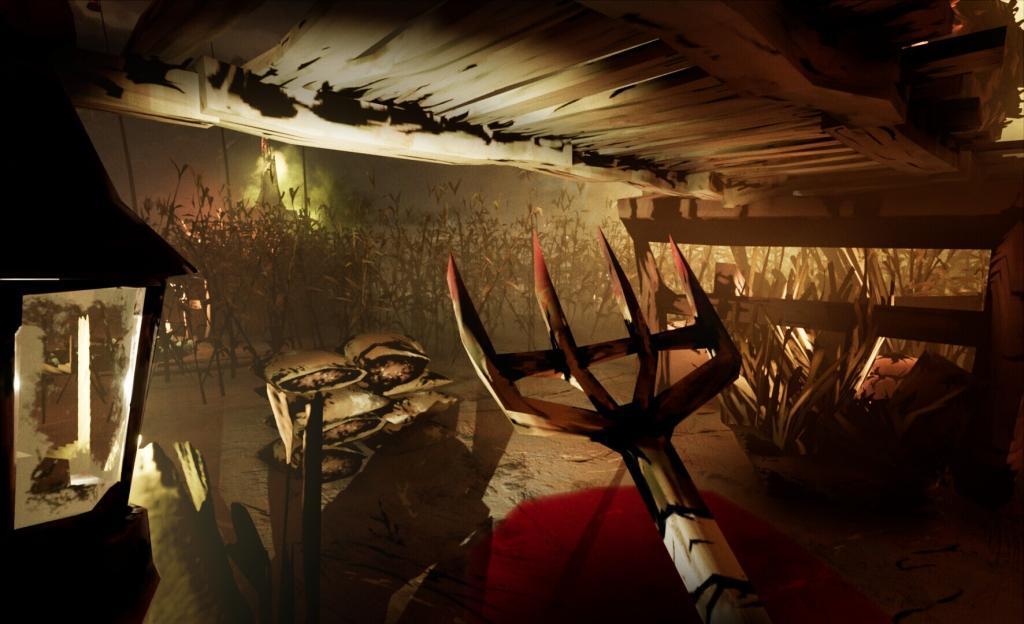‘Harvest Hunt,’ the new horror FPS roguelite from Villainous Games Studio and Neonhive Games, makes a bold attempt to merge dark village lore with roguelite gameplay. Despite its ambitious design, the game delivers an uneven experience that’s both intriguing and occasionally frustrating.
At its core, ‘Harvest Hunt’ sets players in the role of a village “warden” tasked with protecting their home from a monstrous entity known as the “Devourer.” Spanning five nights of play, each session unfolds as a separate skirmish within a larger “season.”
Also Read: ‘Oddity’ Review: A Perfect Blend of Paranormal and Domestic Horror
The gameplay involves a mix of stealth and aggression as players navigate the claustrophobic maps of Luna Nova village, trying to outwit or avoid the Devourer. While the first-person visuals are striking with their dark comic book style, the HUD can feel cluttered, though it can be adjusted once players become accustomed to the game.
The game’s narrative approach resembles that of titles like ‘Hades’ and ‘Darkest Dungeon,’ where the story unfolds through gameplay rather than cutscenes or static dialogues. Players collect a resource called Ambrosia, which is critical for survival and progression. The Devourer roams randomly, corrupting any Ambrosia it encounters, adding a layer of tension and urgency to each run. Early encounters can be managed with simple tools like pitchforks, but as the game progresses, the creature becomes tougher and the environment more hazardous.

‘Harvest Hunt’ offers a range of cards and items to help players cope with the increasing difficulty. These include stealth and combat enhancements, as well as various traps and obstacles introduced by the Devourer. The game’s management phase between nights allows for strategic adjustments, such as selecting spawn points and preparing for future challenges.
Despite these features, ‘Harvest Hunt’ struggles to maintain its initial appeal over extended play sessions. The map remains largely unchanged throughout the game, which can make subsequent runs feel repetitive. Additionally, the absence of voice acting leaves the narrative elements somewhat flat, reducing their impact on the overall atmosphere.

